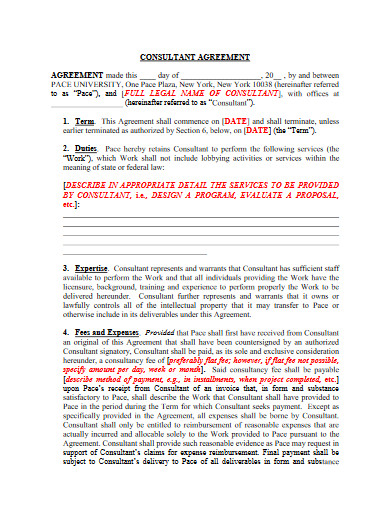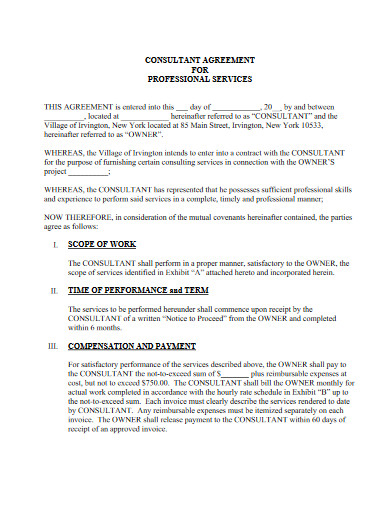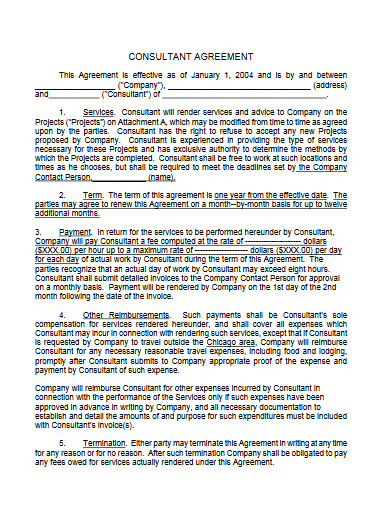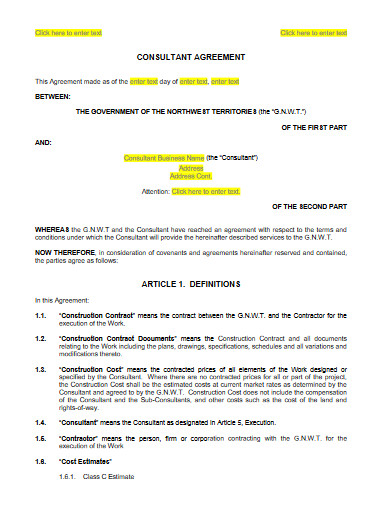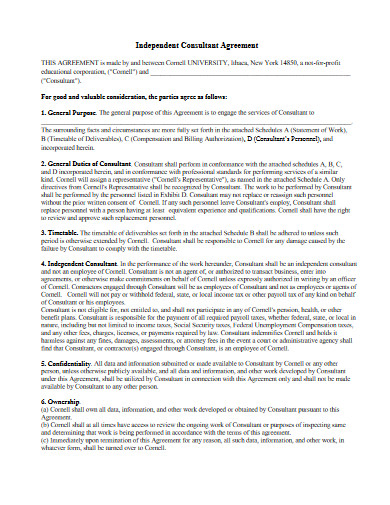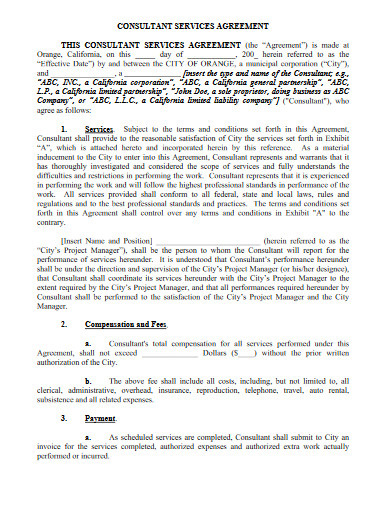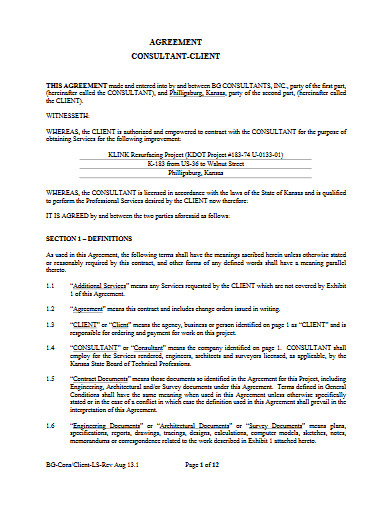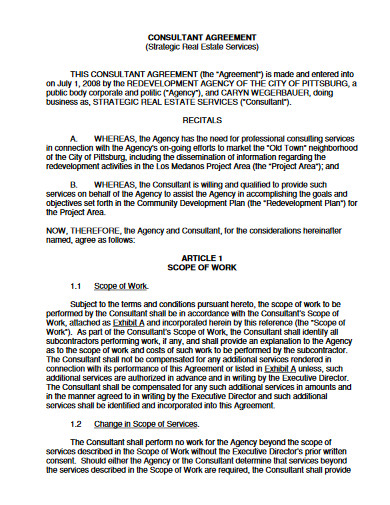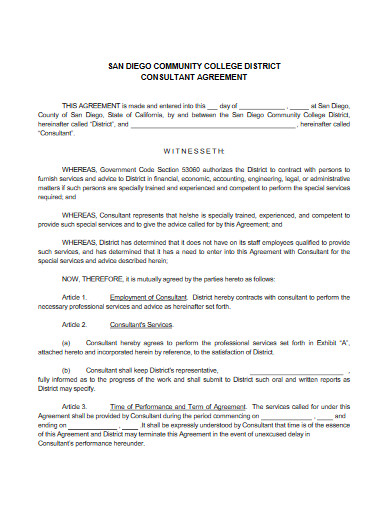10+ Consultant Agreement Examples to Download
We all want our companies to flourish in all business aspects. And the first step to achieving such a goal is to seek wisdom from consultants. Knowing these professionals, they are masters of a particular field in business. That only means that they have enough experience and knowledge to guide us through various projects in financial, management, marketing, and other areas that need development. Given that you’re willing to engage with these experts, you have to create a standard and legal document that details your consultancy settlement. If you’re in a rush to make one, you better check our article and examples right away!
10+ Consultant Agreement Examples
1. Consultant Agreement Template
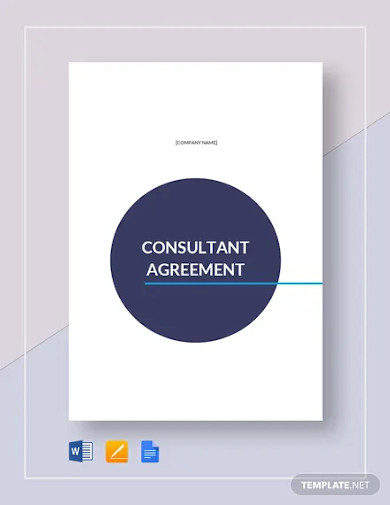
2. Agreement with Consultant to Provide Software Support Services Template
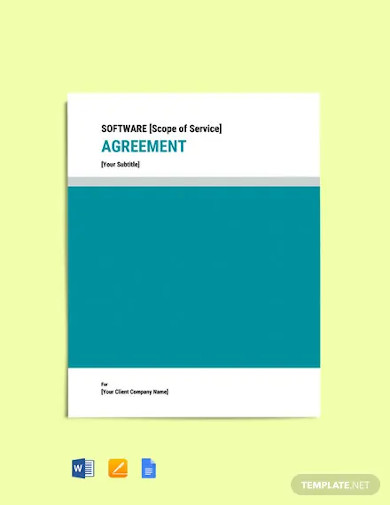
3. University Consultant Agreement Template
4. Consultant Agreement for Professional Services
5. Consultant Agreement Example
6. Sample Consultant Agreement
7. Independent Consultant Agreement
8. Consultant Services Agreement
9. Client Consultant Agreement
10. Real Estate Consultant Agreement
11. College Consultant Agreement
What Is a Consultant Agreement?
A consultant agreement is a client-contractor business arrangement where business consultants are the contractors. Its content highlights the scope of work, terms and conditions, and service compensation. Getting into this kind of agreement is highly beneficial, regardless of whether it serves for short-term or long-term goals. A few of the benefits include the provision of a good external viewpoint and specialized knowledge. As the consulting agency or individual issues these two to the client, the latter can expect to have improvements in the operational approach. These improvements could take the form of cost-efficiency, refined adaptability, and many more.
Three Frameworks for Management Consulting
Every consultant has his or her ways of giving advice and assistance to clients. Even though these approaches are different from one to the other, their designs serve the same purposes. These purposes include the resolution of issues, improvement of product and operations, as well as the refinement of business continuity. With so many new frameworks, the traditional ones, consisting of the strategic model, tactical model, and operational model, still stands out among consultants.
Strategic – This framework is useful for the positioning of the different areas of a company. For this framework, strategic planning SWOT analysis and strategic analysis reports are necessary.
Tactical – This framework works best for clients who want better control of their company processes, business inventory, capabilities, and talent management.
Operational – This framework works hand in hand with the business execution plan, leveraging the best operational practices and methodologies.
How To Make a Consultant Agreement
Consultant agreements are not necessarily enforceable by the law. Regardless of that fact, they still have to follow certain standards. Its content should consist of the conventional sections that follow customary order while applying technical writing and agreement or contract writing principles. Below, we have set out an outline of guidelines to help you in standardizing your planned agreement.
1. Identify the Involved Parties
The first and most basic information needed in a consultant agreement is the legal names of the involved parties. A straightforward statement of purpose should accompany these details. Moreover, you have to indicate the participants’ labels, which will be useful in mentioning them for the rest of the process document. Service provider and client are the usual labels of participants in a consultant agreement.
2. Explain the Rights and Obligations of Each Party
Both parties must have a clear understanding of their rights and responsibilities in the settlement. In other words, you must also have to clearly explain the scope statements, as well as the terms and conditions. The section should also contain the schedule of work that enumerates the complete list of activities together with their corresponding timetable.
3. Present Non-Disclosure Agreement
Every business transaction incorporates sensitive or confidential information. As a responsible service provider or client, you must keep it safe from copyright infringement, piracy, or intellectual property theft. For this reason, you must include the complete details of your non-disclosure agreement (NDA) or data confidentiality agreement.
4. Set Agreement Duration
After presenting the NDA, indicate when the agreement will take effect and when it will expire. This is very important, so both parties will know when to commence the consulting services and when to perform the proper agreement closure. This is also a good basis for other reasons for termination.
5. Provide a Termination Clause
There are many reasons for agreement termination. According to Carbon Law Group, the most common of causes consist of the following:
– Incomplete consideration
– One party is incapable of getting into any agreement
– Fraudulent activities
– Both parties commit a mistake
– False advertising
– Breaches
– Discharge by Frustration
– Impossibility of Performance
6. Enumerate Payment Terms
There are many ways of how a client can pay their hired consultants. At the same, consultants have their payment method preference. Hence, both parties’ last task is to come up with a mutual decision on the delivery of payment. In this section, the inclusion of the payment amount and payment schedule is important.
FAQs:
What are the major types of dispute resolution processes?
The dispute resolution processes have two major types. These include the adjudicative and consensual processes. The adjudicative processes include litigation and arbitration, where a judge or an arbitrator decides the result. On the other hand, the consensual processes refer to the processes in which the involved parties try to resolve disputes. These processes could take the form of negotiation, collaborative law, mediation, and conciliation.
What are the different types of business consulting?
There are five types of business consulting. They consist of strategy consulting, operations consulting, financial consulting, information technology (IT) consulting, and human resource (HR) consulting.
What is the average rate of business consultants?
According to Thumbtack, small business consulting in the United States has an average price range of $95 to $1,500. However, the price could vary depending on three factors, including your location and the type of consulting service.
The consulting industry players have helped many businesses continue, improve, maintain, and even top their respective markets. Because of the benefits they bring, companies would look into getting a few of them in their professional networks. Some of these companies would internally hire one, and some prefer hiring one externally. Whichever the case, both the consultants and the clients have to protect the acquisition of the consulting service. One good way to start is through the production of agreements.



